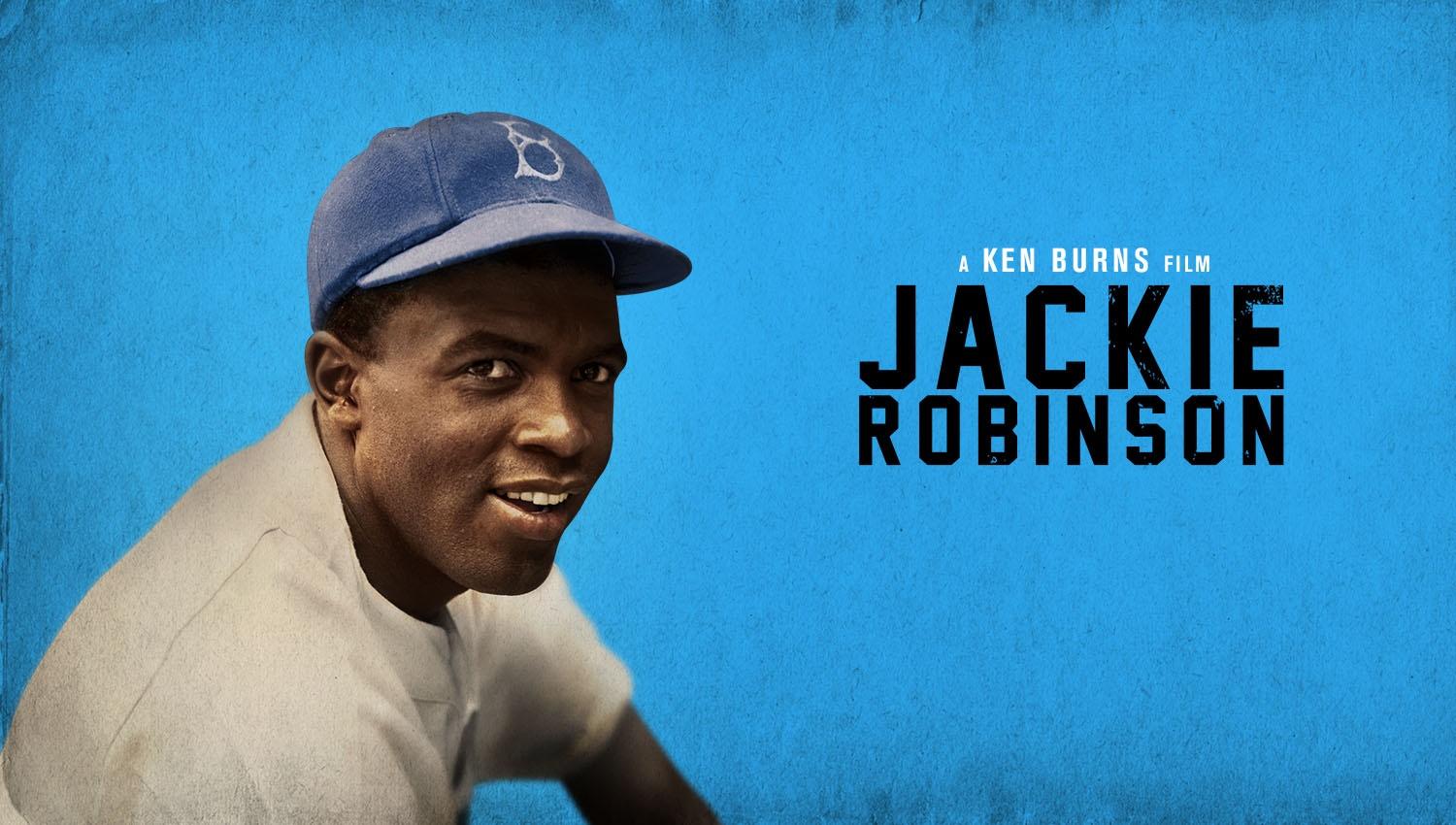
Jackie Robinson, a two-part documentary series from Ken Burns, is appropriate viewing for Major League Baseball’s annual Jackie Robinson Day.
Given that today is the anniversary of Jackie Robinson breaking baseball’s color barrier, I decided to prep for the day by watching the documentary in recent days. It was a long overdue new-to-me viewing. When I moved in 2016, I opted against paying more for a DVR so it took a bit longer than I should admit. And yes, the documentary series covers Robinson’s army service, which the Defense Department recently erased from its website, only to place it back online following the backlash.
The first half takes us from Jackie Robinson’s childhood as a son of Georgian tenant farmers through the end of his first year in MLB. Robinson attended UCLA, where he excelled in four sports and met his wife, the future Rachel Robinson. He dealt with racial discrimination from a young age and he would stand up for himself, even while serving the nation.
Jackie Robinson was one of three Black players to try out for the Boston Red Sox, which became the final team to integrate in 1959. Nothing really happened following the tryout. However, Dodgers president and general manager Branch Rickey offered Robinson a contract. Robinson played the 1946 season with the Montreal Royals, ultimately being called up to start the 1947 season with the Dodgers.
The back half takes us further into Jackie Robinson’s home life and playing career. The 1949 might have been a breakout season for Robinson but he testified in front of HUAC about comments made by Paul Robeson. We see excerpts from The Jackie Roosevelt Story, a film released in 1950. The 1951 season ended in heartbreak for Dodgers fans, losing in a playoff series to the New York Giants on Bobby Thomson’s walk-off home run.
The baseball portion of the two-part documentary series is what draws audiences in as baseball fans. What makes the documentary even more compelling–if that’s the best word choice here–is the amount of time Burns spends by focusing on Robinson’s life as an activist. If I’m being honest, his endorsements of either Nixon or Rockefeller were completely new to me. In reading online, I did see where he endorsed Vice President Hubert H. Humphrey during the 1968 presidential election. All of this was completely new to me because I never really read about Robinson’s personal politics.
Robinson’s last public appearance came before Game 2 of the World Series at Riverfront Stadium on October 15, 1972. Upon accepting a plaque, he said, “I’m going to be tremendously more pleased and more proud when I look at that third base coaching line one day and see a black face managing in baseball.” Nine days later, he died.
Jackie Robinson is another essential documentary from Ken Burns and company, showcasing the Baseball Hall of Famer’s life both on and off the field as part of the Civil Rights Movement. While 42 is a suitable narrative to watch in just over two hours, the Ken Burns documentary goes above and beyond in covering Jackie Robinson’s life and career. If you’re a fan of the ballplayer, most of what you’ll see in the two-part documentary series falls within familiar territory.
For the rest of my review, please visit Dugout Dirt.
DIRECTORS: Ken Burns, Sarah Burns, and David McMahon
SCREENWRITERS: David McMahon and Sarah Burns
NARRATOR: Keith David
VOICE CAST: Jamie Foxx
FEATURING: Rachel Robinson, Sharon Robinson, David Robinson, William Anderson, Harry Belafonte, Ralph Branca, William Branch, Tom Brokaw, Howard Bryant, Ed Charles, Gerald Early, Marty Edelman, Jonathan Eig, Carl Erskine, Frank Graham Jr., Roger Kahn, Michael Long, Willie Mays, Minnie Miñoso, Don Newcombe, Barack Obama, Michelle Obama, Vin Scully, Carly Simon, John Thorn, Myron Uhlberg, Alton Waldon, George Will, Yohuru Williams
PBS aired Jackie Robinson on April 11-12, 2016.
Please subscribe to Solzy on Buttondown and visit Dugout Dirt.



